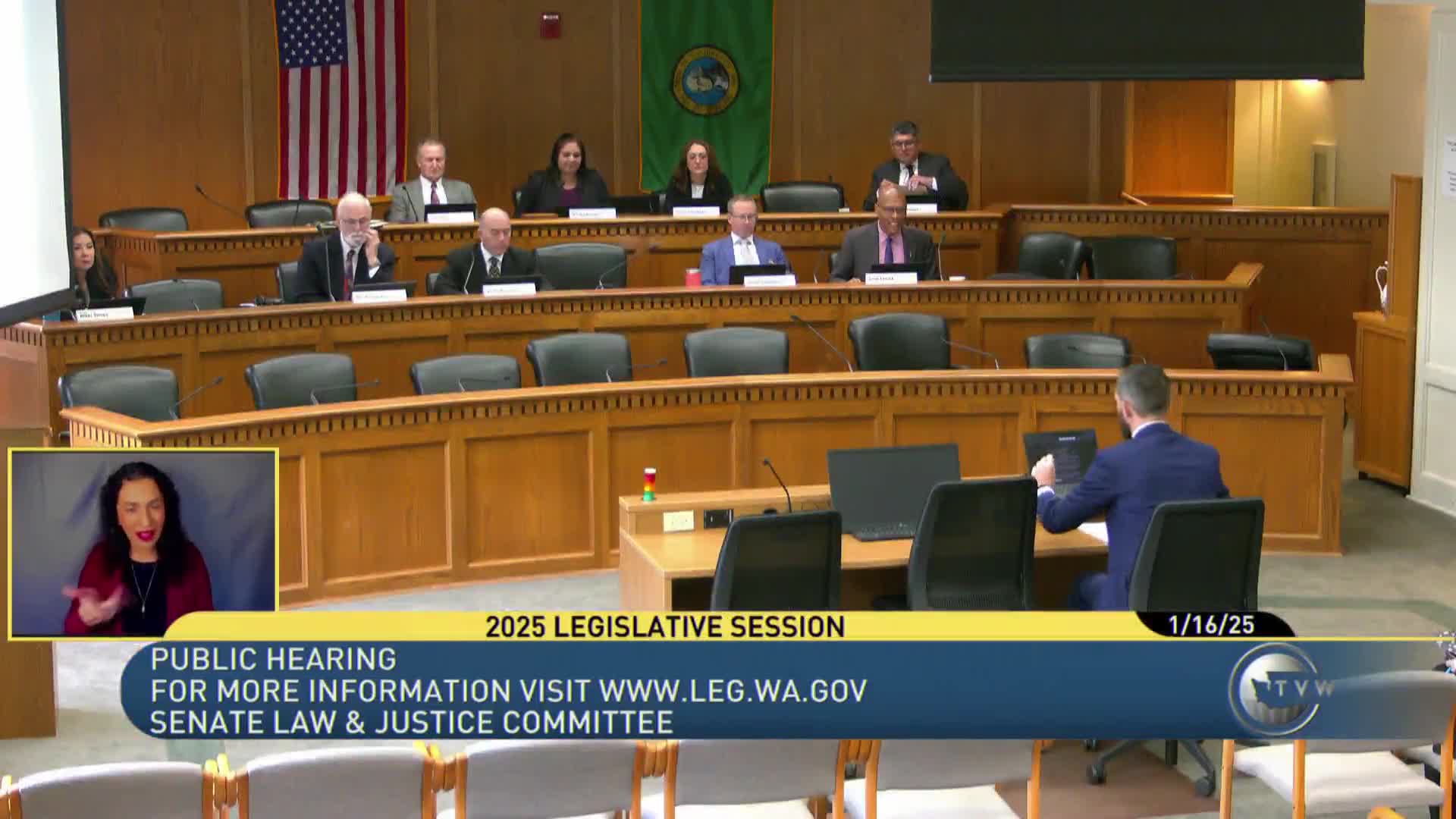Bill would let judges cite caregiver status when departing from sentencing ranges; advocates and prosecutors differ
Get AI-powered insights, summaries, and transcripts
Subscribe
Summary
Senate Bill 5133 would add primary caregiving to the list of mitigating circumstances a judge may consider for an exceptional sentence under the Sentencing Reform Act. Supporters say it protects families and reduces recidivism; prosecutors warned language is broad and could be interpreted too widely.
Senate Bill 5133, heard Jan. 16 before the Washington Senate Law & Justice Committee, would add a person’s status as a primary parent, legal guardian or caregiver for family members to the non‑exhaustive list of mitigating circumstances a court may consider when imposing an exceptional sentence under the Sentencing Reform Act (SRA).
The bill’s sponsor, Senator Claire Wilson, said the change is intended to give courts explicit statutory authority to consider caregiving responsibilities when judges weigh departures from the SRA’s presumptive sentencing grid. "A strong family structure can reduce recidivism, which is why the caregiver status is believed to be a mitigating factor," Wilson said. She said the bill was requested by the Administrative Office of the Courts and supported by the Gender and Justice Commission.
Britney Gregory, associate director of judicial and legislative relations for the Administrative Office of the Courts, told the committee the bill clarifies existing discretion rather than creating an automatic or mandatory reduction. "This is still subject to judicial discretion," she said, and judges must find by a preponderance of the evidence that substantial and compelling reasons exist before issuing an exceptional sentence.
The Washington Association of Prosecuting Attorneys expressed concern about the bill’s breadth. Russell Brown, executive director, said the statute’s current alternatives for parents are narrowly tailored and the new language could be read very broadly. "We read it as someone could seek a mitigated sentence if they were the parent who was abusing a child," Brown said, adding that he did not think the bill intended to extend that protection so widely but asked the sponsor to work on narrower language.
Supporters included the Washington State Gender and Justice Commission and defense organizations that urged clarification to avoid disparate impacts on women and families. Victoria Broomhorse of the Gender and Justice Commission said the Washington Supreme Court’s decision in State v. Law has limited some personal factors from mitigation consideration and the legislature can expressly allow caregiving to be considered without creating an entitlement to a reduced sentence.
There was no fiscal note requested for the bill at the time of the hearing. Committee members asked staff and interested parties to coordinate on narrowly tailored language that avoids unintended interpretations; the hearing record does not show final committee action on the bill.
Ending: The committee closed the public hearing after multiple witnesses; no final vote was recorded in the January 16 hearing. Further drafting was requested to address concerns raised by prosecutors.
